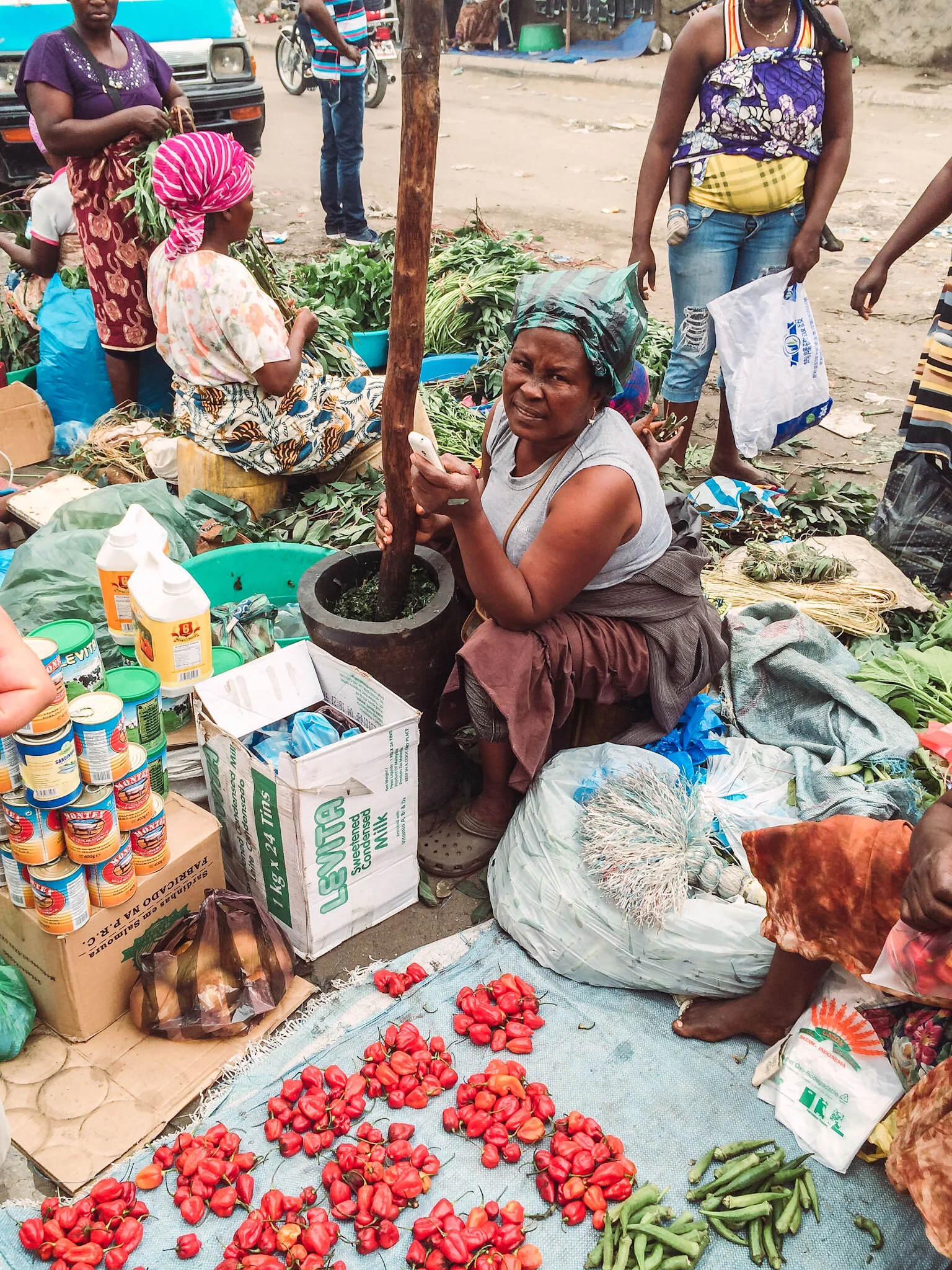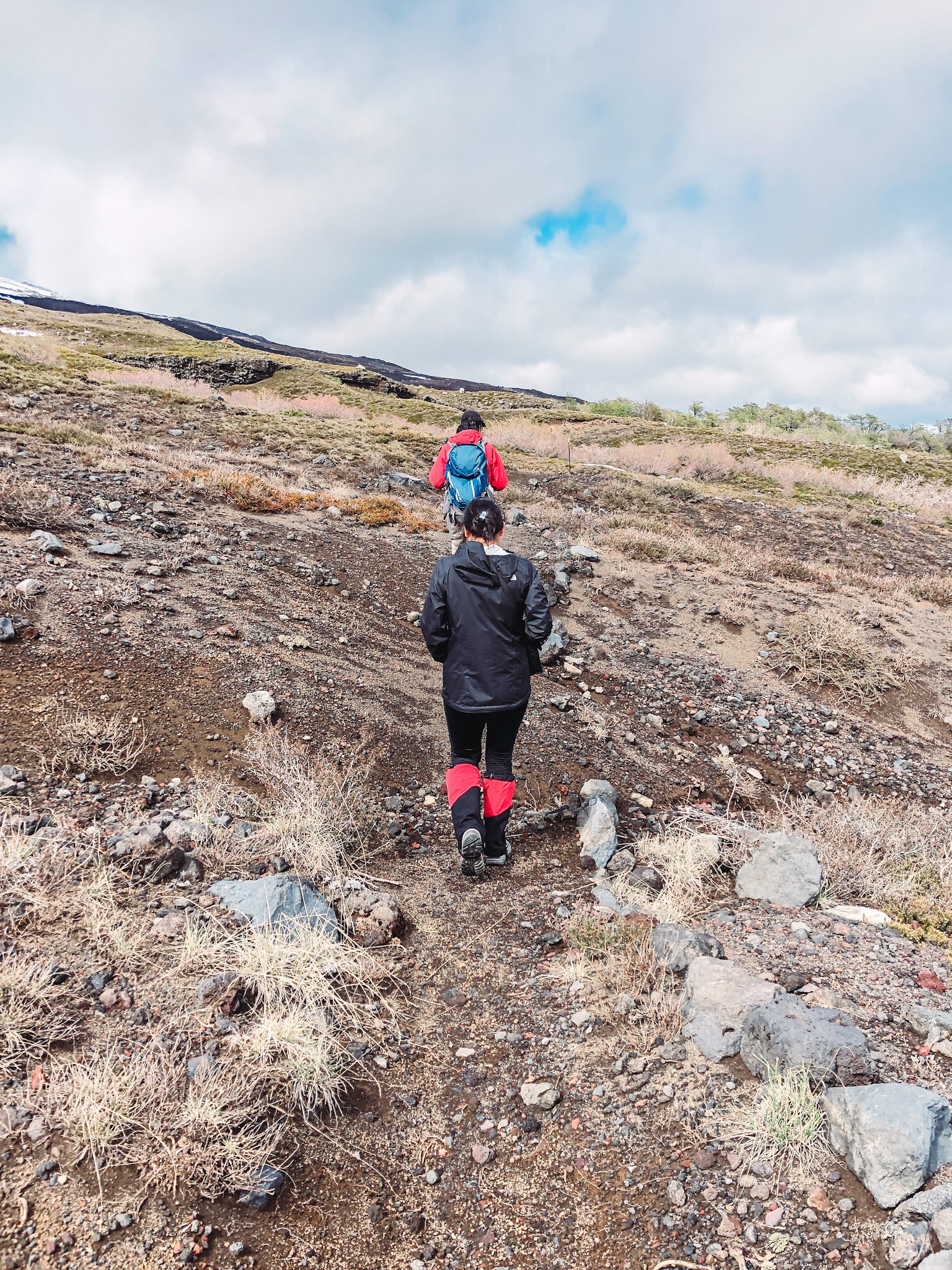Expat Life in Luanda, Angola - Part One
Poverty, Food & Expat Housing
Are you considering moving to Luanda, Angola as an expat? Then you’re in the right place. I lived in Luanda for 3.5 years as an American expat and I’ll tell you everything you need to know about being an expat in Luanda, Angola.
When I tell most people I lived in Angola they typically ask, “Where’s that?” and I’ll tell them where in Africa it’s located and I can tell they’re still confused about it. Angola isn’t a very well known country however there are many global companies that have an office there. And if you’re reading this, there’s a good chance you’re considering moving to Luanda on an overseas expat assignment with your company.
Check out my YouTube video on this topic —>
My Background
Angola holds such a special place in my heart, not only because it was my first home away from the USA but also because it was the first international country I traveled to. Angola is super random, I know, but my company had a branch in Luanda. From our Houston office, I handled visas for contractors working in Angola. So, I was sent there on a business trip in January 2009. I remember coming home and telling my boss, “I think I could live there.” Little did I know I would get the chance 5 years later...
With my background, I have the unique perspective of having been to Angola as a visitor on a business trip, and having moved there as an expat. And as an expat, I was both an expat spouse and a few months after moving to Luanda I worked as well. So I’ve both worked in Angola and stayed home.
With all that being said, Luanda was a hard place to live however it was very rewarding in terms of the opportunity there, the people you meet and the culture you get to experience.
I’ve broken this information on Angola into 3 separate blog posts! This post will cover poverty, food and expat housing.
Make sure you subscribe below to be notified with the next two posts will be released later this month.
The second post in this series will cover driving, safety & Portuguese. And the third post will cover travel, stores, access & cost of goods, work visas.
Poverty
Over 50% of Angolans live below the poverty line. And that’s probably being conservative. If you’ve done any research before landing on my blog, this shouldn’t be surprising to you.
Angola is a natural resource rich country however the spoils of those resources tend to stay at the top. Meaning money doesn’t trickle down to fix things like hunger, infrastructure, sewage, water, etc.
If you’re considering living in Luanda, Angola then be prepared to see this devastating poverty on a daily basis. You will be living face-to-face with it everyday. It can be difficult, sad and take a mental toll on you.
The poverty is devastating in Angola and hard to wrap your mind around. It affected me on a daily basis. Sometimes when driving I couldn’t look out the window because it was just too much. I saw so many sad things but the worst were people using the restroom on the side of the street and small children using puddled up rain water to wash their faces. These examples are just a tiny fraction of what you will witness on a daily basis.
If you’re planning to move to Luanda, Angola you need to be prepared for the amount of poverty you will see on a daily basis.
Food
I’m going to be honest here, Angolan food wasn’t amazing to me. They get a lot of influence from Portuguese food, since they were a Portuguese colony before their independence. A lot of the most popular dishes in Angola consisted of meat or fish, funge (mashed cassava) and vegetables. Typically all on one plate and you would mix it together to eat.
Another popular thing in Luanda was buffett style restaurants. You would go through a buffett and get all the meat, rice, veggies and sweets you could stack on your plate. At the end of the line there was a scale where you would weigh your plate. The weight of your plate determined the cost of the meal. We went to those restaurants a lot so we could each get what we wanted.
Luckily, Luanda also has a lot of global influence from all the expats that live there and you can easily find good food from other regions as well. There are many Chinese immigrants living in Luanda and they’ve opened up quite a few good Chinese restaurants. Vista de Forteleza was one of our favorite Indian places. Andy’s was another great one but more pricey with smaller portions.
Mediterranean food was also very popular in Luanda and there were a few good restaurants in the downtown area. Our favorite was a lebanese spot called Al-Dar.
And whenever I was homesick for the USA, I would make my way over to KFC and grab some fried chicken. About mid-way into our time in Luanda, a Pizza Hut also opened up and that soon became a weekly purchase for Andrew and I as well. It’s funny because I don’t eat a lot of fast food here in the USA but it really hit the spot when I was missing home.
Housing
If you’re planning to move to Luanda on an expat assignment with your employer then they should be taking care of your housing for you. Meaning, you won’t be responsible for locating a place to live.
Our company had designated compounds to live based on an employee's family status (single, couple or family) and they took out a certain amount for housing expenses from each of our paychecks.
Since you won’t have to look for housing, it will help you to know what to expect when you arrive in Luanda. Expats that are currently based there can share photos and their thoughts of the housing with you. Before we moved, we reached out to expats already there and they happily sent us photos of a similar home so we knew what we were moving into. It also helped with the packing.
When we lived in Luanda, all the expats I met lived in western-style apartment complexes or homes. They were typically fairly large units with several bedrooms and bathrooms. Most housing also had modern kitchens but some with smaller European appliances.
Housing Quality
But be warned, just because your housing may appear Westernized and be the same size as western-style accommodations, it doesn’t mean the building standards are the same.
In fact, Luanda is notorious for their buildings being built quickly with cheap Chinese quality. And it’s no different with the houses and apartments. On a regular basis you would hear stories about AC units breaking down, roofs caving in, kitchens flooding and walls crumbling. It may sound shocking now, but after a few months living in Luanda these things will become normal.
Personally, we were super lucky to have lived in 2 very good homes that never had significant issues other than the electricity going out on a regular basis and the home water tank acting up once in a while. But we had many friends that had issues and even some people that had to move homes multiple times in a year due to all the excessive repairs needed.
Most of the housing communities and the apartment buildings will have amenities such as a gym, pool, recreation area, lobby and park area. As an expat, you’re basically living in a gated community. But right outside those gates there will be severe poverty all around you.
Next on the three part series is an article about driving, safety and Portuguese. Be sure to check back next week to read it.
And in part three, I will share my conclusion and whether or not I think you should move to Luanda, Angola as an expat.
I also have a Luanda, Angola Activity List with over 40 activities you have to do when you move to or visit Luanda, Angola! Get it here!
If you’re ready to take the plunge and move abroad, check out my ultimate overseas packing checklist which has everything you need to make your new country a home!
Please leave any questions you have about Angola life below. I would love to help anyone out that’s moving there and has specific questions.









